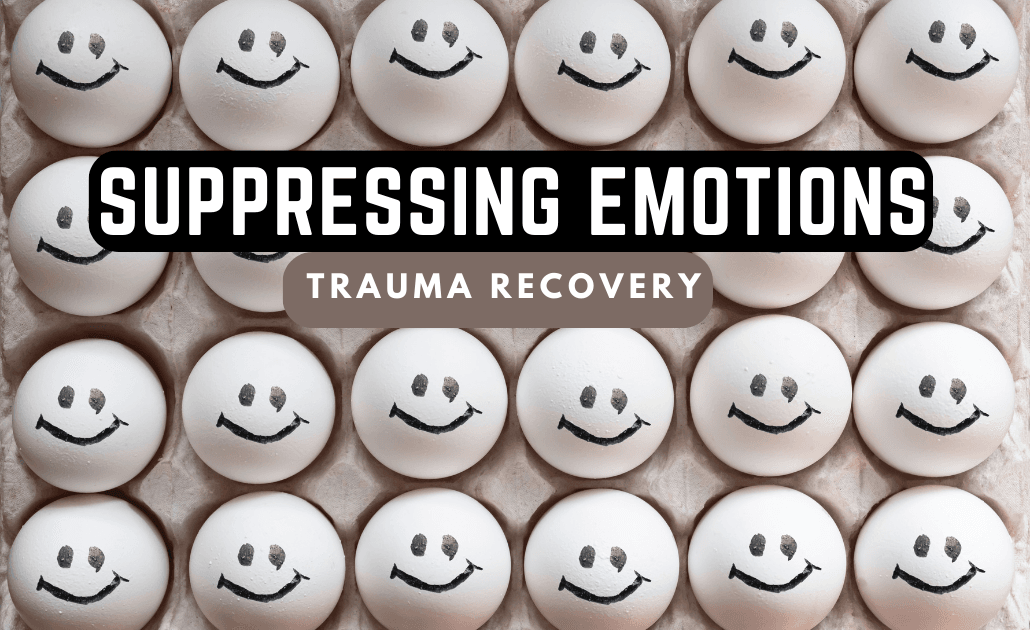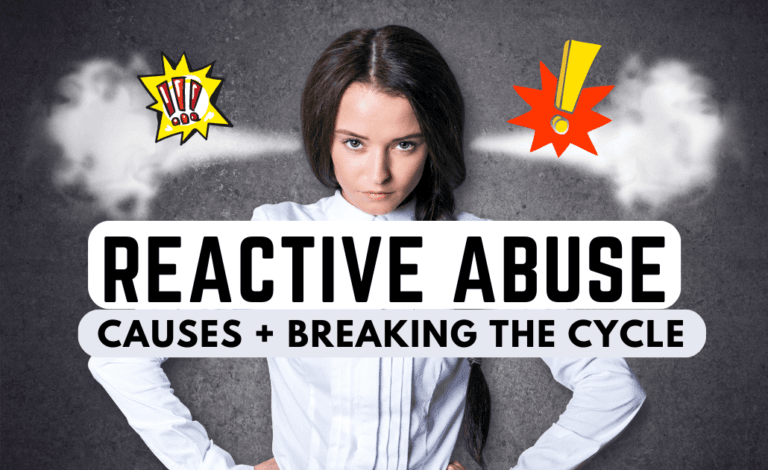8 Reasons Why Emotional Abuse Survivors Suppress Their Emotions
Welcome to the Healing Journey!
If you landed on this page due to suffering emotional trauma from either a prior emotional abusive relationship, narcissistic relationship, or even grew up as the scapegoat in a dysfunctional home environment you have come to the right place.
During the healing journey, you may start to learn new things about yourself.
You might start to notice that you may suppress your emotions because it’s hard to feel everything when you are healing and facing the trauma you endured.
It’s okay, the healing phase and your journey is unique to you. You can heal in your time and on your schedule. It will have ups and downs and it is not a linear path. And…you may learn things about yourself. Learn more about the stages of grief and loss after narcissistic abuse here.
In this post today, we are going to explore several ways that you may be suppressing your emotions as a coping mechanism as you do down the healing path.
Why Suppression Occurs
Survivors of emotional abuse often develop coping mechanisms to endure the difficult and toxic dynamics of their relationships. The following contains the reasons why the brain kicks in to allow you to cope during high stressful situations.
Self-Preservation: Emotional abuse can be extremely damaging to one’s self-esteem and sense of self-worth. Survivors may suppress their emotions to protect themselves from the pain and humiliation inflicted by the abuser. Numbing emotions can act as a shield to prevent further emotional harm.
Fear of Consequences: Emotional abusers often use manipulation, threats, and punishment to control their victims. Survivors may learn to suppress their emotions to avoid triggering further abuse or retaliation from their partner. Expressing emotions openly might lead to more significant consequences, reinforcing the need to keep emotions hidden.
Gaslighting and Doubt: Emotional abusers frequently engage in gaslighting, where they manipulate the survivor’s perception of reality and make them doubt their feelings and experiences. This constant confusion and doubt can make survivors question the validity of their emotions and eventually suppress them to avoid feeling crazy or uncertain.
Dependency on the Abuser: In some cases, the emotional abuser may isolate the survivor from friends, family, and support networks. As a result, the survivor becomes emotionally dependent on the abuser, making it even more challenging to express emotions freely or seek help.
Normalizing the Abuse: Over time, emotional abuse can become normalized in the survivor’s mind. They might accept the abusive behavior as part of their reality, leading them to suppress emotions as a means of adapting to their perceived “normal” environment.
Shame and Guilt: Emotional abusers often use guilt and shame as tools to control their victims. Survivors may internalize these feelings and feel ashamed of their emotions, believing that they are unworthy or undeserving of love and care.
Conditioning: Prolonged exposure to emotional abuse can condition survivors to suppress their emotions as a survival mechanism. They might have learned that expressing emotions leads to negative outcomes, reinforcing the idea that it’s safer to keep feelings hidden.
Dependence on the Relationship: Despite the abuse, some survivors may still have an emotional attachment to their abuser, making it difficult for them to fully acknowledge and process their emotions.
It’s important to note that suppressing emotions is a survival tactic developed in response to the abuse, but it can have significant long-term consequences on mental and emotional well-being. Be sure to chat with a specialist.
Other Coping Mechanisms
In addition to numbing or suppressing emotions, emotional abuse survivors often develop a range of coping mechanisms to navigate their difficult circumstances. Here are some other coping mechanisms that might emerge:
Dissociation: Survivors may mentally detach from the abusive situation as a way to distance themselves from the pain and distress. This can create a feeling of being disconnected from reality or having an “out-of-body” experience.
Hyper-vigilance: Constantly being on edge and anticipating the abuser’s actions or mood shifts is a common coping strategy. Survivors become hyper-aware of subtle cues, attempting to prevent or mitigate potential conflicts.
Escapism: Engaging in activities like excessive reading, TV watching, or other forms of distraction to mentally escape from the abusive environment.
Isolation: Some survivors may isolate themselves from others to avoid potential triggers or because they believe they are undeserving of healthy relationships.
Minimization: Downplaying the severity of the abuse or convincing oneself that “it’s not that bad” can help survivors cope with the overwhelming reality of their situation.
Submissiveness: Adopting a submissive demeanor to placate the abuser and reduce the chances of confrontation or escalation.
Externalization: Blaming external factors or circumstances for the abusive behavior, rather than recognizing the abuser’s responsibility.
Self-Blame: Internalizing the abuser’s blame and criticism, believing that the abuse is somehow deserved.
Self-Isolation: Isolating oneself from friends, family, and social support to prevent them from discovering the abuse or as a result of feeling embarrassed or ashamed.
Control-seeking: Attempting to regain a sense of control in some aspects of life, such as meticulous organization or rigid routines, to counterbalance the chaos of the abusive relationship.
Addictive Behaviors: Turning to substances, such as alcohol or drugs, or engaging in addictive behaviors like overeating or overspending to numb emotional pain.
Perfectionism: Striving for perfection as a way to gain approval and avoid criticism, often as a learned response to the abuser’s high standards or relentless criticism.
It’s important to recognize that these coping mechanisms are survival strategies developed in response to the trauma of emotional abuse. While they may provide temporary relief, they can also perpetuate unhealthy patterns and hinder long-term healing. Survivors can benefit from therapy, support groups, and education to develop healthier coping mechanisms and break free from the cycle of abuse.






